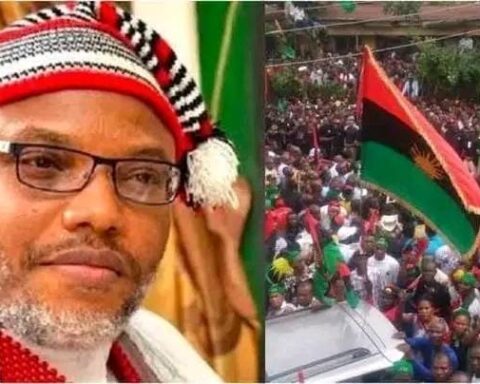The International Organisation for Migration (IOM) has called for “sufficient regular migration pathways” to tackle challenges associated with irregular migration in Nigeria.
The IOM Chief of Mission in Nigeria, Ms Paola Pace, noted this in an interview with the News Agency of Nigeria (NAN) on Tuesday in Abuja, that the driving force behind irregular migration is tied to insufficiency of regular migration pathways.
Pace said: “This means the pathways that allow individuals to migrate in a safe, orderly and regular manner, in the same way that family reunification or educational visa schemes are familiar to many.
“However, there are other innovative models like skills mobility partnerships, which are pathways that facilitate upskilling of actual or potential migrants to fill labour gaps, either at home or abroad.
“These not only prevent brain-drain, they offer viable, sustainable opportunities for migrants to move in a regular manner that governments can monitor.”
She explained that for 18 months, the organisation had been prioritising regular pathways, because its social and economic benefits to both governments and migrants are enormous.
She commended the federal government, civil society, private sector and migrants themselves, for partnering with it, saying that these partnerships helped in promoting the expansion of existing regular migration pathways and creation of new ones.
“Just this week, I had the honour of speaking to the Nigeria Immigration Service on the occasion of their Anti-Smuggling Week.
“This week-long event focuses on another aspect of irregular migration —smuggling, which, together with human trafficking are two legally distinct crimes that are both harmful forms of coercive migration.
“We will continue our work with the Nigeria Immigration Service to combat smuggling or any human rights violation to migrants, not only at the borders, but throughout the full migration cycle.
“The greater the number of regular migration channels, the greater the likelihood that migrants will choose these, if and when they migrate, reducing their personal risk during the migration process,” she said.
Pace commended Nigeria’s participation in the African review process for implementation of the Global Compact on Migration (GCM).
She said that it was a right step in the right direction toward positioning the country in protecting the rights of migrants.
The Global Compact on Migration (GCM) is the first-ever intergovernmental-negotiated UN agreement on a common approach to international migration.
“This global compact places enormous weight on regular pathways, as a critical avenue to safeguard the human rights of migrants and to reduce irregular migration.
“Nigeria is a Champion Country of the GCM, which means it is a thought and action leader on how best to amplify, streamline and make equitable regular migration pathways.
“In October, IOM hosted a side event to the continental review process in which numerous government officials, private sector and civil society stakeholders participated, to focus on next steps for Nigeria in this context,” she added in a report by the News Agency of Nigeria.



























